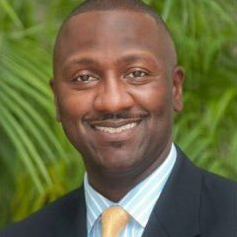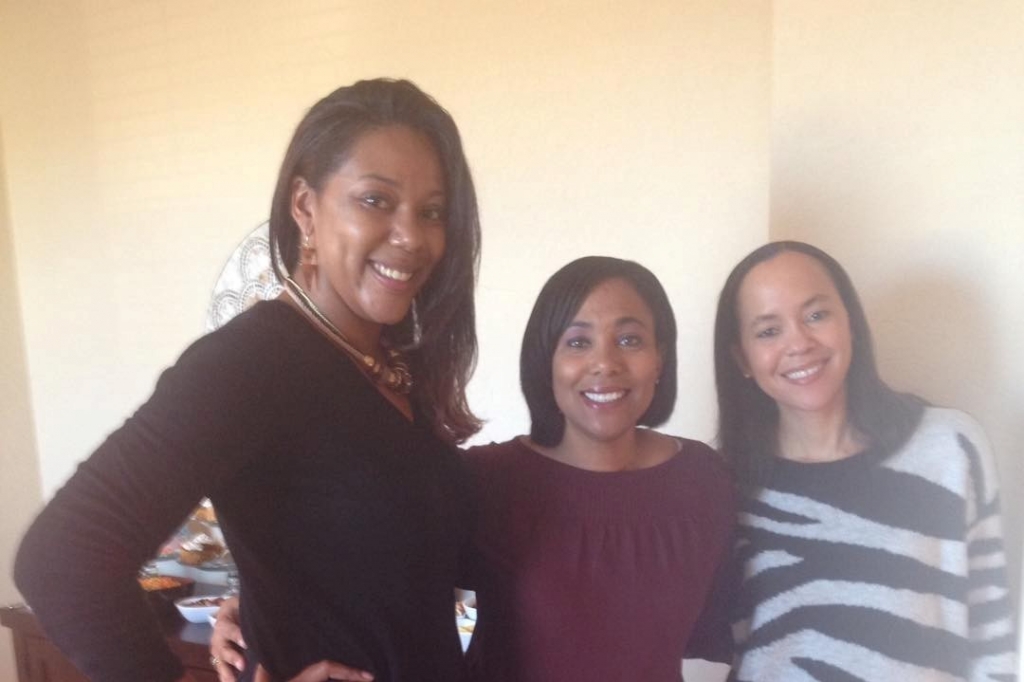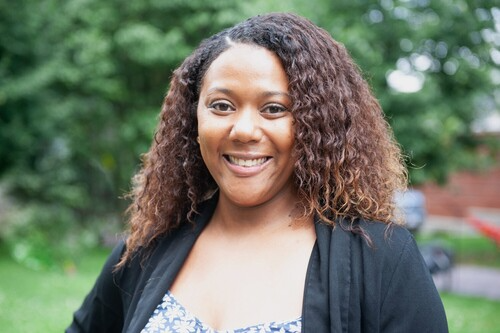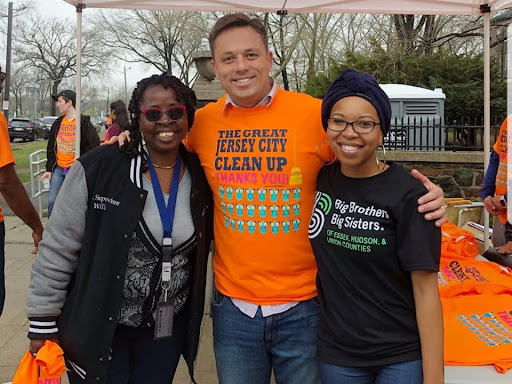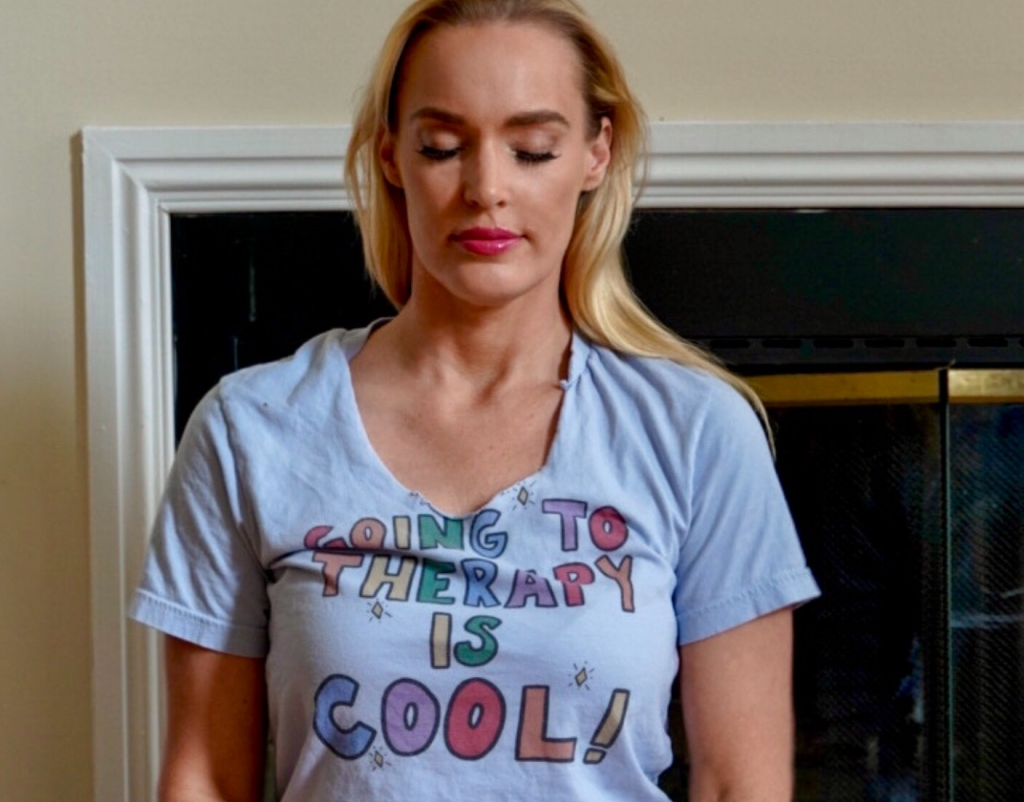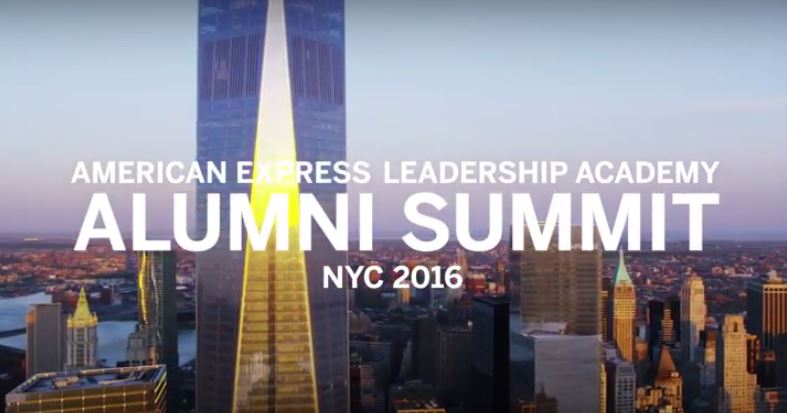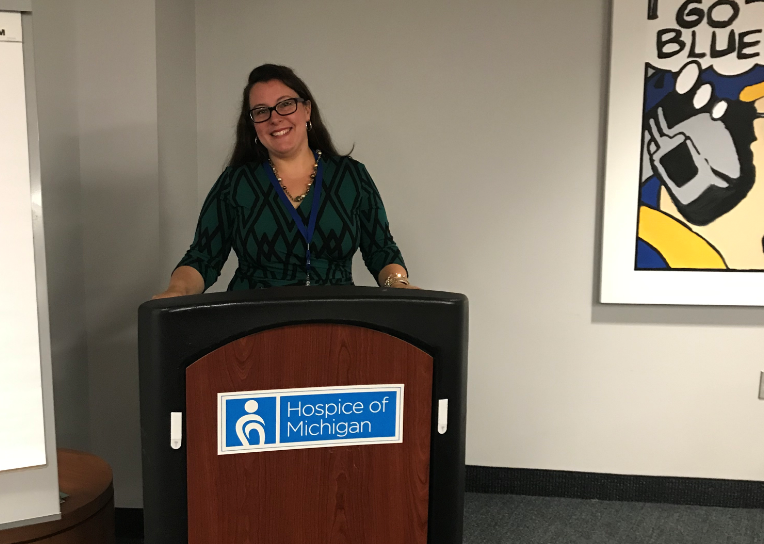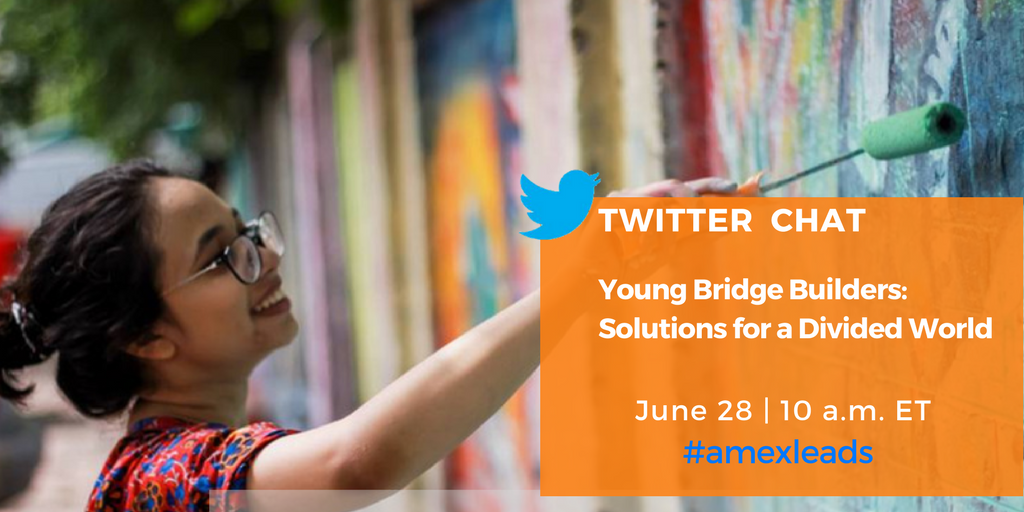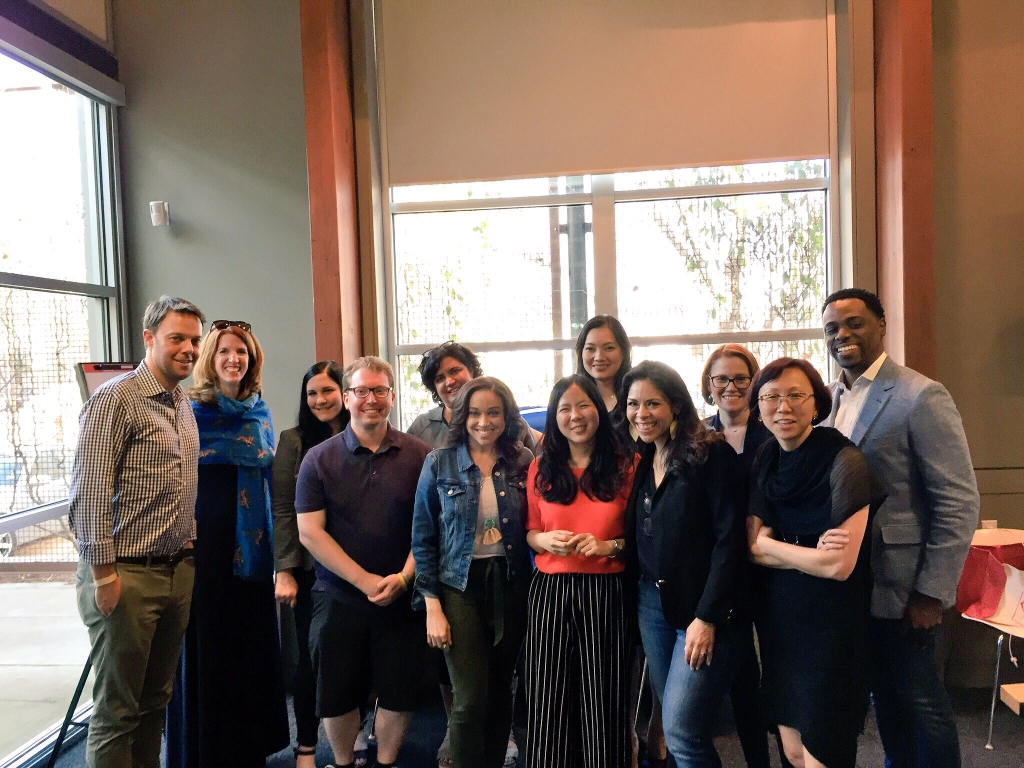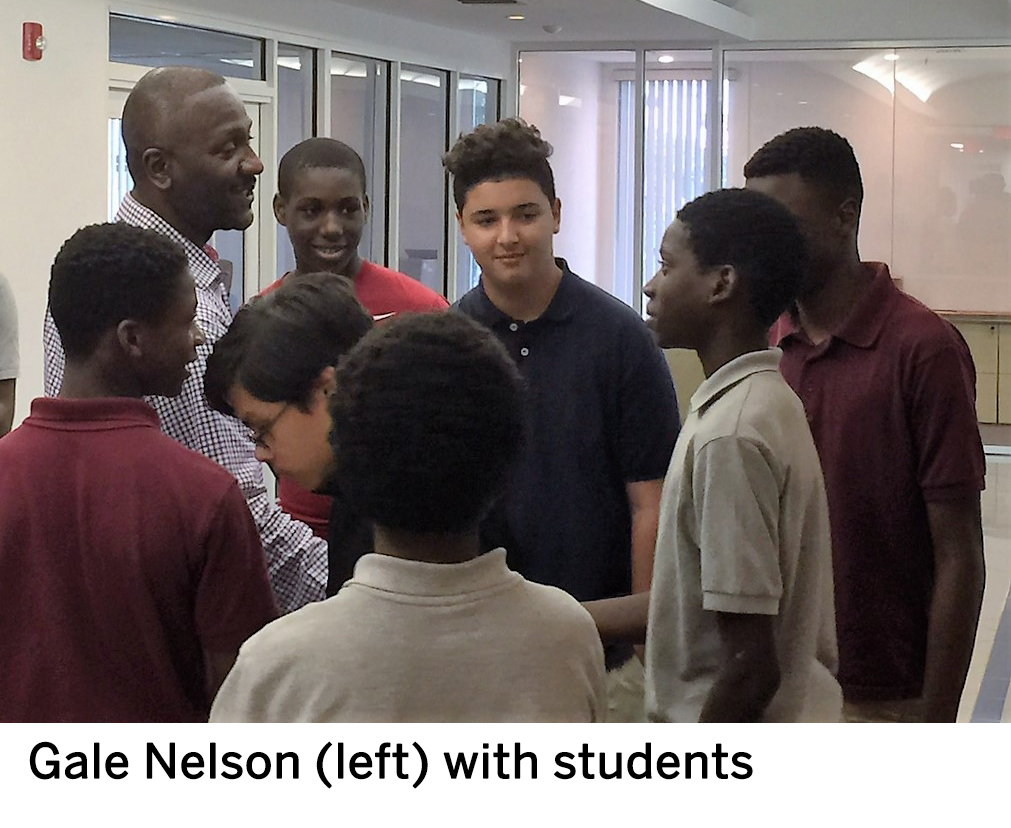
Gale Nelson is President of Big Brothers Big Sisters Miami, which connects vulnerable children and young people with mentors, helping more than 7,000 children, volunteers and families every year.
How did your social purpose leadership journey start?
I grew up in inner-city Toledo, Ohio. My parents divorced when I was 2 years old. My mother raised two boys on her own, working two jobs. As I got older, my yearning to meet my father overwhelmed me. When I was 18, I flew out to the San Francisco airport to meet him—he was in the Air Force. Here I was, a grown man meeting my father. I remember saying, “Hi Rick” because I did not feel comfortable calling him dad. He sadly never recognized the richness of being a father.
In many ways, I’m the man I am today because of what my dad wasn't for me as a child. I’m now a husband of 21 years and the father of four beautiful children. With Big Brothers Big Sister Miami, we serve kids and families from primarily single, female-headed households just like mine as a child…this is what fuels me. I was THAT kid!
In college, I majored in corporate finance and thought I’d go to Wall Street, become filthy rich, help out my mom, and retire at 35. But I moved to south Florida to be near my dad and took a job teaching adult education. This aspiring Wall Streeter was at a local high school with a box of chalk and a GED prep book—and loving it.
I ultimately ended up at a new juvenile justice program called Bay Point Schools working with 13- to 18-year-old boys, rising from teacher to Executive Vice President to COO.
These were some of the smartest kids I’ve ever met in my life: black, white, Hispanic, coming from gangs that would fight each other on the street, but were now literally brothers on the campus. It was a spotless campus, because the students took care of it. We treated them as students, not offenders. In court, we required them to wear a polo shirt, tucked in, pants pulled up, and trained on how to properly address the judge. Often, the judge would have the court stand and applaud these kids for their accomplishments.
We were helping young people in very real ways—but I kept asking myself, why do they need to be arrested to get the help they need? At the same time, we started to get pressure from the state of Florida that we needed to be “more correctional.” For example, if we took kids off campus, we were supposed to shackle them.
I decided that it was time to move to the prevention side, to keep young people from ever entering the juvenile justice system. And here I am. For me, this is not a job. I have told many, “When this becomes work, I need to do something else” and I mean it.
How does your work help build the world you want to see?
Big Brothers Big Sisters is the oldest and largest youth mentoring organization in the United States. At the same time, we are doing some things that are innovative and practical to help "move the needle" on how many young people we serve.
In light of everything happening with police-community relations across the country, I’m very proud of “Bigs in Blue," a program we launched in partnership with the Miami Dade Schools Police Chief. It is a partnership that engages police officers, judges and others in law enforcement to serve as one-on-one mentors with young people in an ongoing way. We took the work they were already doing through community policing initiatives and gave them a platform to make a long-term commitment. It’s now a national program, with a public launch on the Today Show. I’m humbled and proud.
Leadership is not something I do, it's who I am. I believe in sacrifice, servanthood and reflecting on where I came from and the position I'm in now to help others.
Although we are best known for connecting young children to mentors, we’re expanding to help older youth. I’m particularly excited about School to Work, our award-winning workplace mentoring program where we match high school students with corporate volunteers. We currently serve over 1100 youth in Miami, connecting them with professionals in some of the biggest companies in the country. We remove the excuses by giving these busy people the opportunity to mentor during work hours.
Also, for the first time since we launched in 1958, we have a permanent home. Our new Carnival Center for Excellence gives us 46,000 square feet to provide holistic critical resources for kids and families. This past holiday, we were able to stay open and provide services and a safe space for kids.
I was that kid who needed a safe place to go a lot of the time, so this feels like things have come full circle.
What are some of the biggest challenges?
Raising funds that allow you to recognize and grow the tremendous talent of nonprofit leadership is a constant challenge.
A related challenge is that it’s harder than it should be for our leaders to stay in the sector and have a standard of living that lets them take care of their family. When I talk with other nonprofit leaders, I see the tremendous difference they’re making nationwide, but so many are struggling with the decision of whether to stay or go. That question should never be one we have to grapple with if you enjoy the job you do.
I’ve faced it, too. Saying no to corporate offers has not been easy, but I made the commitment to stay in this sector because I believe it’s where my leadership and my story, both personally and professionally, can really make an impact.
It is also a challenge to find the right people. I have had to fire a number of people and I do not say that in a boastful way. You have to be tough and make decisions. There are a lot of committed people who care, but it takes more than passion, we need performance and accountability.
You often hear leaders say we need to run our nonprofits more like a business. Maybe it’s my background, but that seems obvious to me. We are a business. We’re not making widgets, we are transforming lives. Like any good business, we need to track our metrics and invest in our people to have a solid bottom line. Period.
What supports have helped you most?
I’ve had mentors through the years who helped me stay on track and find the areas where I can make the greatest impact.
In 2015, I attended the American Express Leadership Academy and that was powerful. In particular, the “360 assessment” evaluations that my team, peers and Board completed before the Academy gave me an opportunity to see how they view me and my work. After seeing their evaluations and insights, I have become a more intentional leader.
What advice do you have for other emerging social purpose leaders?
My primary advice is to frequently step back and think about the business side. We are stewards managing the investments—individual and collective—of our communities. We need to flawlessly execute and seek operational excellence. When you make a mistake or fall short, and I say when not if, be transparent with your staff and stakeholders, and make a plan to correct it.
You also need to practice “MBWA” (management by walking around). A leader needs to be visible and let people know you’re there with them, not sitting in a cushy office. The people we work with and serve need to see us. Leadership is not for show, simply talking with staff provides vital information and perspectives. Never hide behind your desk or your mission.
“Harmonizing” Work & FamilyI don’t try to “balance” work and family because to me the word “balance” implies that something has to give. Everything I do is a labor of love: whether I’m in my office, speaking at an event, at church or coaching basketball, I don’t view it as work. My family is a part of it. My wife has been a Big Sister, my kids know my Little Brothers; they see the entirety of who I am. That’s harmony, not balance. When I was running Bay Point Schools, I would often push my son in a stroller around campus. I didn’t think twice about it; I was a father and I needed to check on staff and students. Years later, I had several former students tell me that was the first time they had seen a man pushing a stroller, and they saw me as both a leader and a father. I was modeling what they could be someday, and what it looks like to be an involved dad. That was harmony. |

